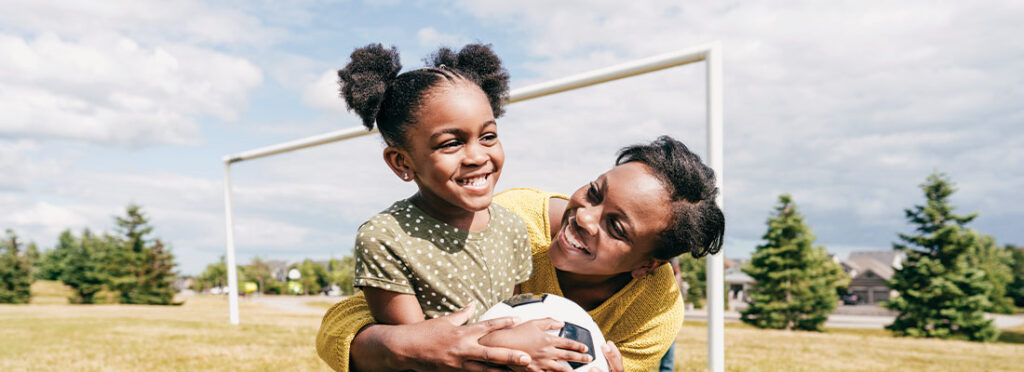What is the Right Age to Start Your Child in Sport?

You’ve got a young child with energy to burn. They’re running in circles, using your couch like a trampoline, and begging to go outside. So, you might be thinking it’s time to get them into sports. But is this the right age?
The short answer is kids are never too young. From baby ballet and swim lessons to t-ball and tot cheer, there is almost always some league or activity focused on playing and having fun. Here are some things to keep in mind when your kids are just starting out.
One sport or many?
Some parents love a particular sport or activity and raise their kids with the hope and expectation their kids will play it, too. And the sooner they start and the harder they practice, the better their chance of being an all-star, or getting a college scholarship, or even going pro…right?
It’s natural for you to share the things you love with your kids and of course you want them to do well. But you should resist the urge to have your child specialize in a particular sport at a young age. Exposing them to multiple sports with short seasons gives them the chance to try a few and figure out what they like.
Young kids who specialize in one sport may get burnt out mentally and physically, especially if the sport is time-intensive or physically demanding. According to Project Play, the average child quits sport by age 11 mostly because it’s not fun anymore, and American children are at increased risk of overuse injuries because they spend more time playing sports. There is a reason baseball leagues have rules about limiting pitches and resting between games. Young athletes’ bodies are not done growing, and they can do serious damage if they are pushed to the limit.
So let your child try a variety of sports when they’re young. They have plenty of time to choose a specialty later.
What if they’re not listening?
So, you chose an activity to get them started and you’re at your first lesson. But your preschool child is on the other side of the room twirling in front of the mirror instead of listening to the coach. That’s okay! Having trouble listening and not sitting still are age-appropriate behaviors for younger kids. Don’t be embarrassed or pressure your child to join in. Give it time.
Keep a close eye on practices to make sure the activities and coaching techniques are age appropriate. For example, instead of expecting very young children to stand in line quietly, coaches should be helping the youngest athletes learn about taking turns and encouraging plenty of free play time.
Keep in mind that your child is just getting started. This is all part of the learning process and it’s all meant to be fun. And of course, remind yourself of that when you’re struggling to get grass stains out of their uniforms.
